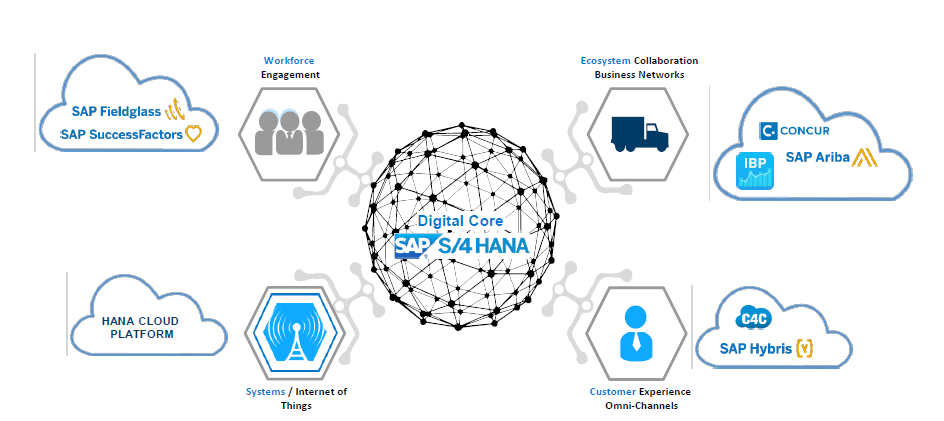SAP ERP Software
What is SAP?
SAP stands for Systems Applications and Products in Data Processing.
SAP by definition is also named of the ERP (Enterprise Resource Planning) software as well the name of the company.The very basic question to any beginners is why Enterprise Resource Planning also called ERP is required? To answer this, let’s examine this typical business scenario.

Suppose a client approaches sales team asking for a particular product. The sales team contacts to inventory department to check the availability of the product. To their surprise, sales team found out that the product is out of stock. So next time this don’t happen, they have to introduce a SAP ERP tool.
Before we actually see in detail, what ERP is and how ERP can help in your business process, we will understand how different departments are involved in the whole business process, right from the ordering of the raw material – to manufacturing goods – to delivering final goods to the customer.

Here is the whole process that is followed by any business unit.
- Client contacts the sales team to check the availability of the product
- Sales team approaches the Inventory department to check for the availability of the product
- In case the product is out of stock, the sales team approaches the Production Planning Department to manufacture the product
- The production planning team checks with inventory department for availability of raw material
- If raw material is not available with inventory, the Production Planning team buys the raw material from the Vendors
- Then Production Planning forwards the raw materials to the Shop Floor Execution for actual production
- Once ready, the Shop Floor Team forwards the goods to the Sales Team
- Sales Team who in turn deliver it to the client
- The sales team updates the finance with revenue generated by the sale of the product. Production planning team update the finance with payments to be made to different vendors for raw materials.
- All departments approach the HR for any Human Resource related issue.
- It has many departments or business units
- These departments or business units continuously communicate and exchange data with each other
- The success of any organization lies in effective communication, and data exchange, within these departments, as well as associated third party such as vendors, outsourcers, and customers.

